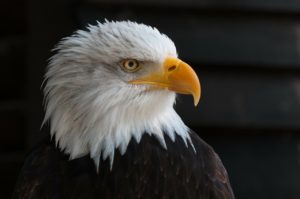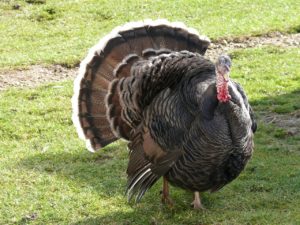
photo credit: brettneilson Eagle via photopin (license)
Today (January 5) marks National Bird Day. Since birds have long been sources of inspiration, I’ll use a couple of very different birds to contrast an important leadership skill: vision.
Let’s start with Bald Eagles. They have such remarkable vision, we’ve developed the term, “Eagle Eye” to describe people with good eyesight. Bald eagles are capable of seeing fish in the water from several hundred feet above, while soaring, gliding or in flapping flight. An eagle’s eye is at least four times better than that of a person with perfect vision. In fact, an eagle flying at 1000 feet over open country can spot prey over an area of almost 3 square miles from a fixed position! Now that’s long-range vision…


Turkeys, on the other hand, have very poor vision at night. While they, too, can see three times better than we can in the daytime, their nocturnal vision is weak. Benjamin Franklin argued the turkey should be America’s national bird because it is a native bird with a proud demeanor and protective instincts, unlike the Bald Eagle—which is more of a scavenger, who robs other birds and animals for prey.
In my first week’s readings of the New International Version (NIV) Leadership Bible, the focus is on long-range planning…which starts with vision.
Click here to learn more about the 3 keys to long-range planning.

